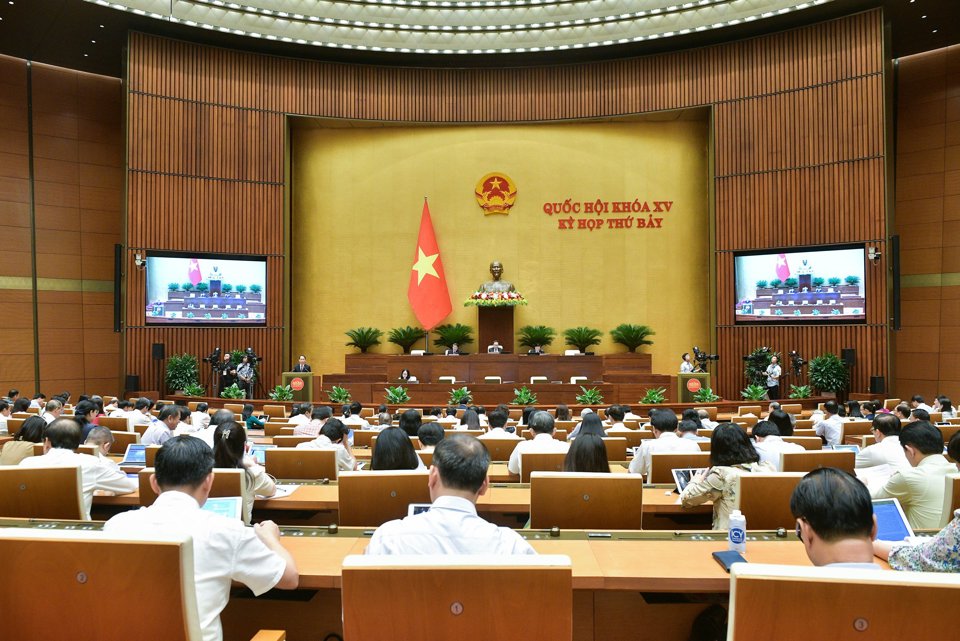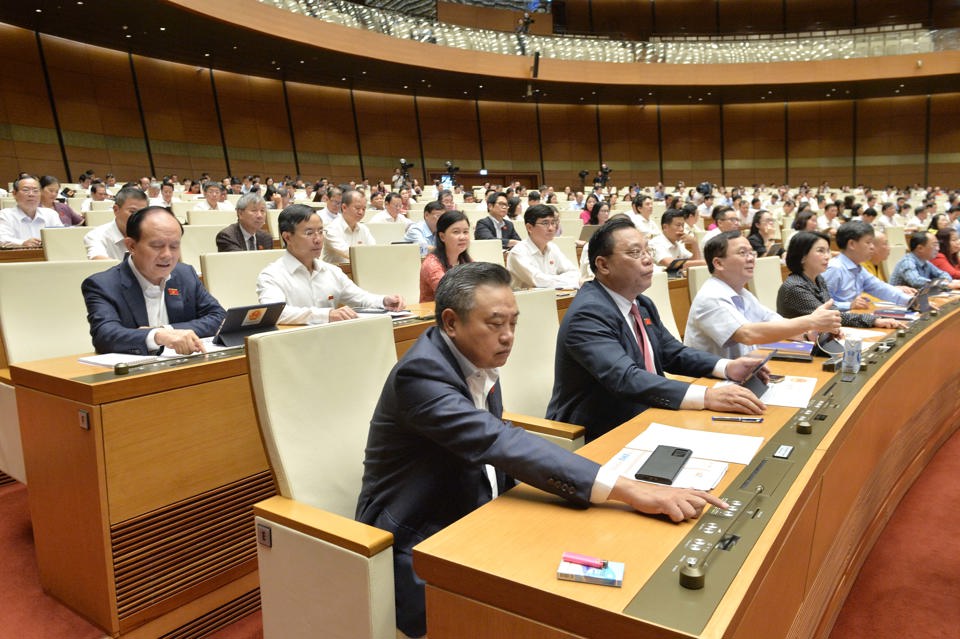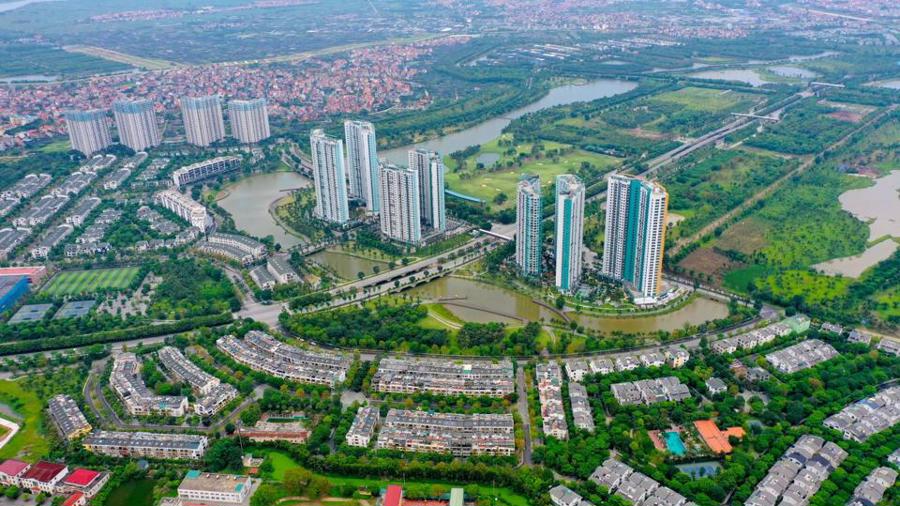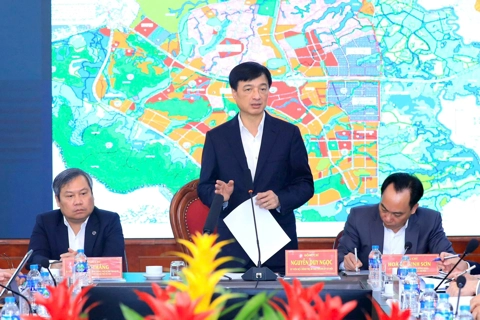Vietnamese National Assembly approves amended Capital Law
The law will come into force on January 1, 2025.
The National Assembly today [June 28] ratified the revised Capital Law with 95% of deputies present in favor.
| Overview of the session. Photos: quochoi.vn |
The amended Law comprises 7 chapters and 54 articles, an increase of 3 chapters and 27 articles compared to the 2012 Capital Law. The law will take effect from January 1, 2025, with seven regulations becoming effective from July 1, 2025.
Regarding the organization of Hanoi’s government, the law ensures a streamlined, professional, modern, efficient, and effective structure. It stipulates that local government in Hanoi city, districts, towns, and city municipalities, as well as communes and townships, will consist of both the People's Council (the local legislative body) and the People's Committee (the executive branch of local government). However, at the ward level in Hanoi, there will only be the People’s Committee, formalizing the abolition of the People’s Council at this level as stipulated in Resolution No. 97/2019/QH14 on the pilot urban administration model of Hanoi.
| Over 95% of the deputies approve the law. |
The law provides for the election of 125 People’s Council deputies in Hanoi, with at least 25% being full-time representatives (an increase of 30). The Standing Committee of Hanoi's People’s Council will have up to 11 members, including the Chairman, up to three Vice Chairmen, and four additional members. This increase is intended to strengthen the legislative body’s capacity and improve its efficiency and effectiveness to meet new challenges.
The law also delegates powers so that when the People’s Council is not in session, its Standing Committee can make certain decisions and report back to the next session, ensuring timely and responsive governance.
For the municipal People’s Committee, the law empowers it to establish new public service units within its administrative scope and delegates or authorizes various tasks to other administrative bodies and agencies.
To ensure oversight, the law mandates that the People’s Council defines the scope of delegated powers, while the People’s Committee adapts procedures to the delegated tasks. The Vietnam Fatherland Front and its member organizations will monitor the implementation of these delegated tasks.
| National Assembly deputies vote on the law. |
Prioritizing resources for Hanoi’s development
The law focuses resources on implementing the subdivision plans for the Red River and Duong River, establishing cultural industrial centers in advantageous areas along these rivers. The Hoa Lac High-Tech Park will receive priority investment in technical infrastructure, with provisions for compensation, resettlement, and worker housing.
The law encourages the development of metro lines in Hanoi using the Transit-Oriented Development (TOD) model, with the city retaining 100% of revenue from certain fees to reinvest in public transport infrastructure.
| Hanoi from above. Photo: Viet Dung/The Hanoi Times |
In particular, the law stipulates that if tax revenues exceed estimates, the government will deduct 30% of the increased revenues to reward the city, in addition to the stipulated revenue sharing. Additionally, Hanoi will retain 100% of the increased revenue from adjusted fees to fund infrastructure and public services.
Hanoi is allowed to pilot a venture capital fund using state budget resources to support high-tech enterprises, science and technology firms, and startups and to innovation and commercialization of scientific and technological products.
For maintaining public order, Hanoi can impose fines of up to twice the general amount set by the government, without exceeding the legal maximums. In necessary cases, local People’s Committee chairpersons can order electricity and water supplies to be cut off to enforce the rules.
The amended Capital Law therefore is expected to enhance governance, infrastructure, economic growth, and public welfare in Hanoi.
















